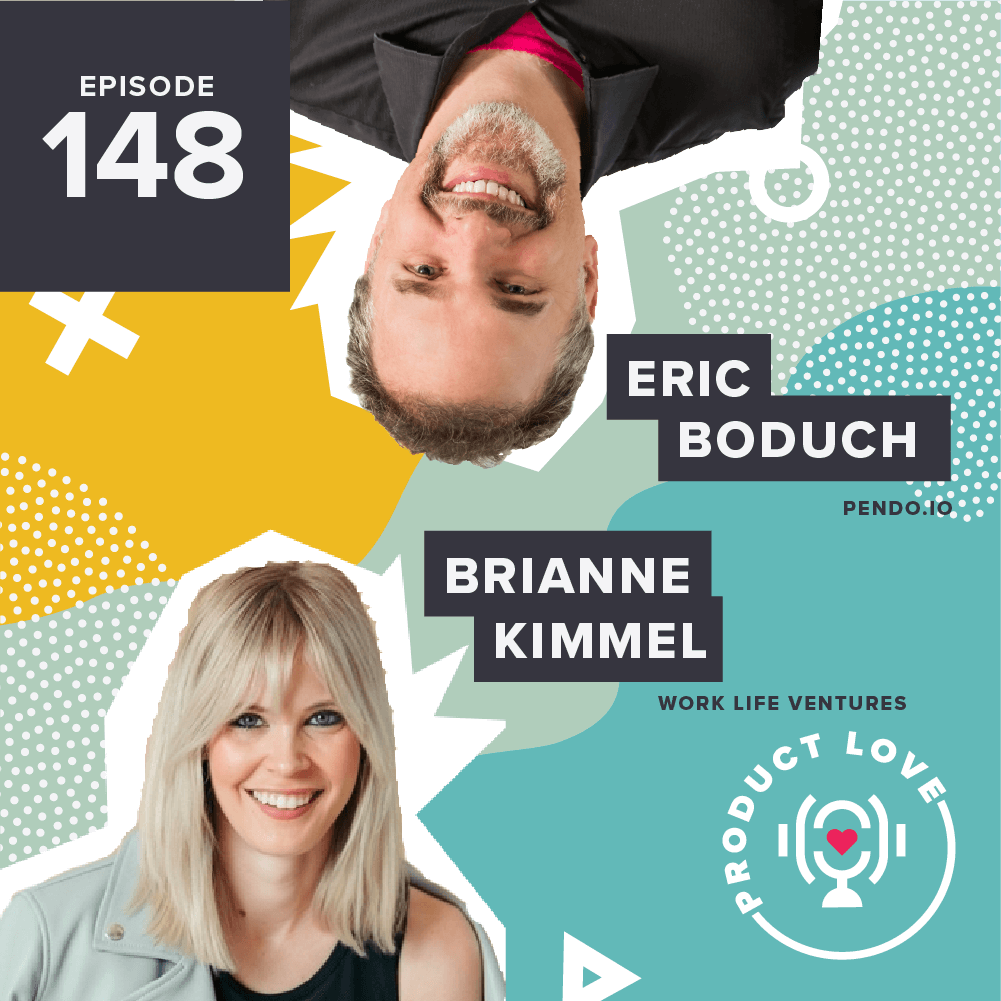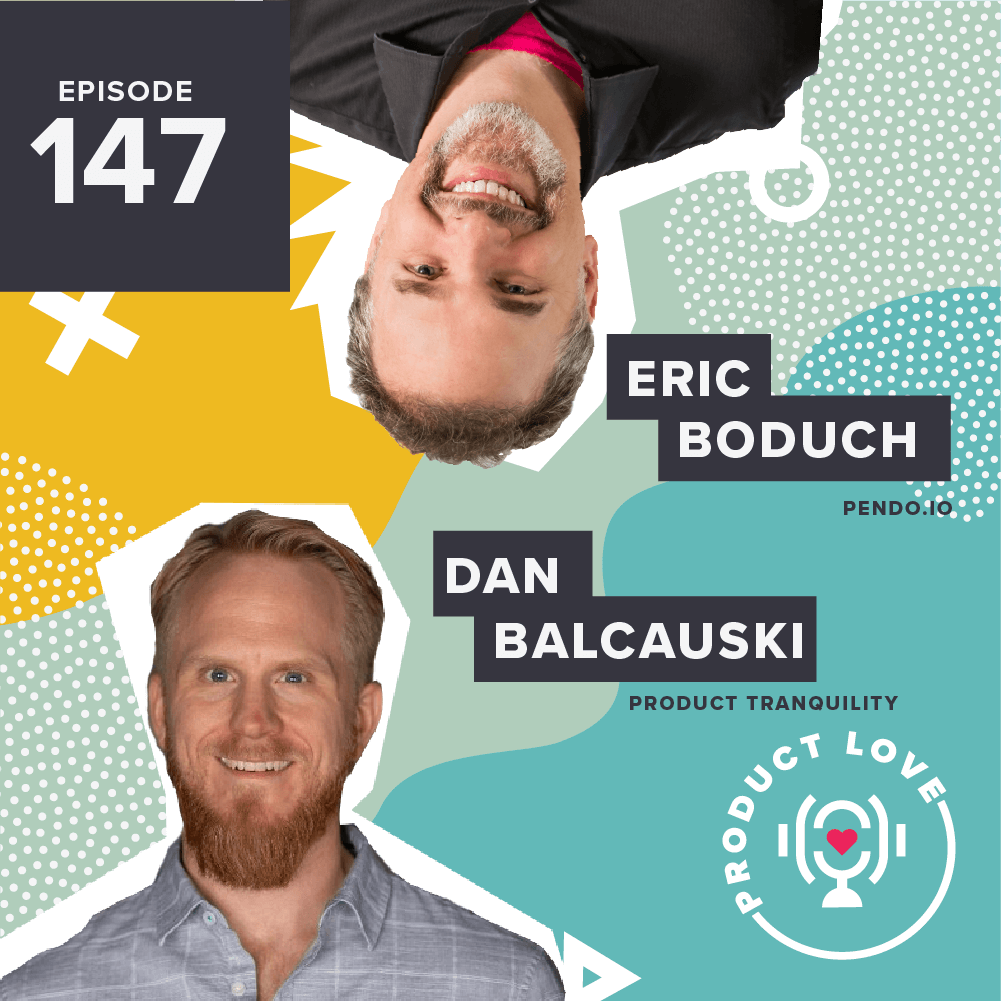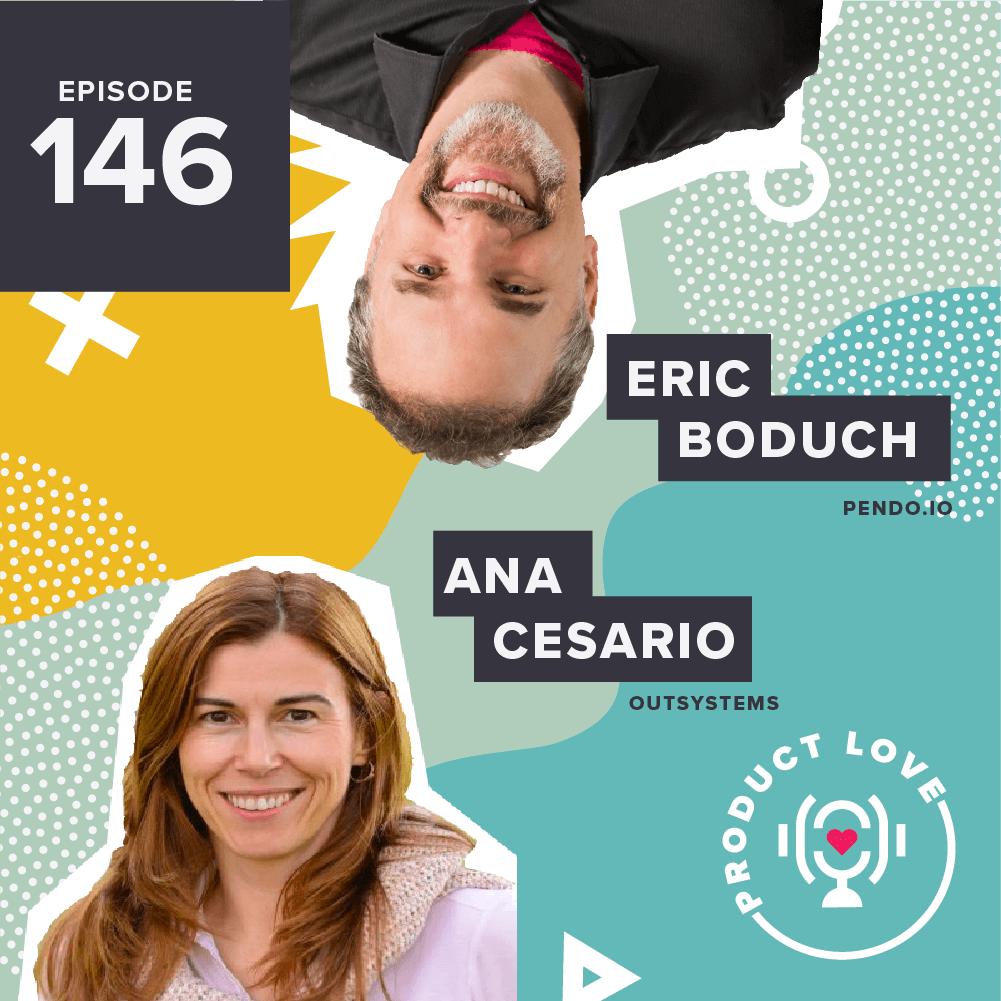This week on Product Love, I sat down with my good friend (who also happens to be the co-founder and CEO of Pendo), Todd Olson. And as of today, he’s also an author. His book, The Product-Led Organization, is now available, and the core themes resonate strongly with current and future trends within product management.
In this week’s episode, we discussed his book, the future of product management, and product ops.
The product-led organization
You’ve probably heard the terms “product-led” and “product-led growth” thrown around plenty of times, but what does it mean to be truly product-led? How do you put the product at the center of your experience?
In his book, Todd dives right into this question. The Product-Led Organization is divided into three sections: “Leveraging Data to Create a Great Product,” “Product is the Center of the Customer Experience,” and “A New Way of Delivering Product,” all of which aim to help product leaders get started on their product-led journey.
The first section,” Leveraging Data to Create a Great Product,” covers a topic that hasn’t been spotlighted enough — how to think about product data. In it, Todd covers different business goals and frameworks that can be coupled with product data, then discusses which measurements should matter most to product managers. The second section, “Product is the Center of the Customer Experience,” is something many of us have heard but is always worth the reminder. It builds on the first section about using data and opens the aperture on thinking about your product in a new way.
In the final section, “A New Day of Delivering Product,” Todd describes how shipping software has changed over the years. Before, we relied on CDs. Today, it’s stage rollouts with feature flags and advice on how to tackle the notion of sunsetting features. Lastly, it hints at a new role that’s emerging within product management — product ops.
The future of the product manager
The product manager’s domain has grown tremendously. Initially, PMs were seen solely as the owners of documentation (or maybe even as bad coders). Nowadays, product managers have a wide range of responsibilities. Every company wants and needs a product manager.
So, what does Todd think the role will look like in the future? He believes the job will start to align more with business goals, and PMs will start to own more business cases (onboarding and retention, for instance). In addition, he predicts that product managers will start partnering and collaborating more deeply with other departments to move top-level business goals forward.
Todd also brings up a really interesting way to think about retention. Retention is truly one of my favorite topics in product management, and one that I believe should spend more time in the spotlight. He says that retention can also be framed as, “Can my champion get a promotion from this?” Think about it. Is your product helping your champion by delivering positive outcomes for them?
Product operations
I asked Todd, “What advice would you give someone who needs to justify the need for product operations?” After all, product operations is a relatively new function. Todd counters by asking people, “Who manages your tech stack? Your tools? Your data?” Product managers are in a role that sits at the intersection of business, sales, and customer success. They’re constantly flooded with data and juggling all of the tools that should help them do their job. They can’t possibly balance all that and still ship what matters. This is where product ops comes in.
In addition, he believes product ops should be responsible for release management. It makes sense: an organization with ten PMs can’t manage ten different beta releases without damaging the customer experience. Instead, a product operations team can organize and own that data. In fact, product managers benefit significantly from a more centralized management function.
Check out the episode above to learn more about becoming a product-led organization. And if you’re interested in claiming a free book, email [email protected]. Limited copies are available.


